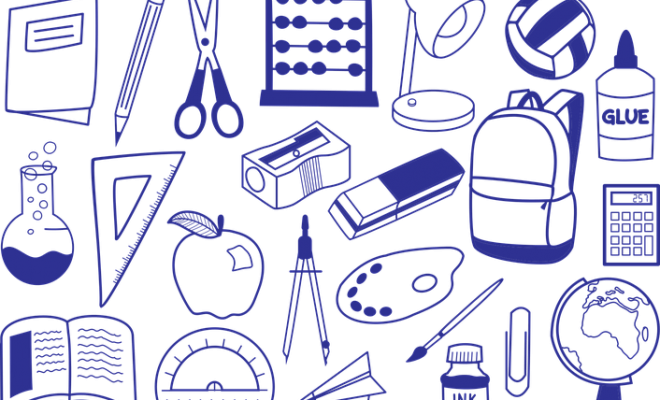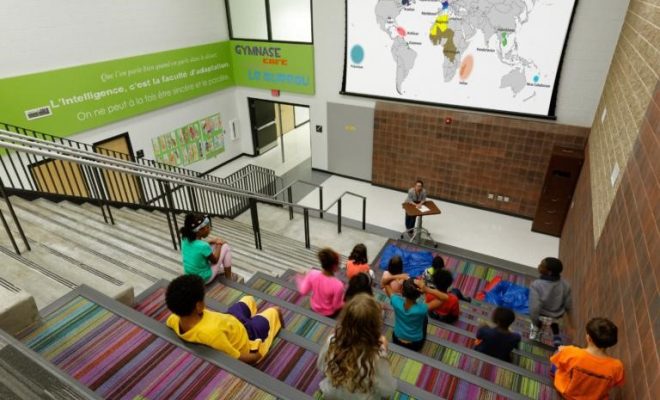Career Change Guide: Becoming a Teacher

By Daniel Karell
There is a growing teacher crisis in the United States. The Learning Policy Institute (LPI) estimates there was a shortage of 64,000 teachers in primary and secondary education schools across the country during the 2015-16 school year. By 2020, an estimated 300,000 new teachers will be needed each year. And that demand is expected to increase to 316,000 new teachers a year by 2025.
During the Great Recession, average class sizes increased nationally due to teacher layoffs. As demand has grown again, schools have had trouble filling key teaching positions, including in the areas of mathematics, science, English as a second language and special education.
Without significant changes in teacher supply or a reduction in demand, annual shortages could grow to a startling 112,000 by next year. As such, there are plenty of open positions available to those who want to teach.
For adults looking to transition to new careers, they might consider becoming a teacher.
DEMAND FOR TEACHERS
With the population growth in the United States, more teachers and schools are needed each year to address the shifting demographics. And school districts are having trouble keeping up.
The Learning Policy Institute found four factors that have led to teacher shortages: a decline in teacher preparation; district efforts to return to pre-recession pupil-teacher ratios; increasing student enrollment; and higher teacher attrition.
Special Education
One of the areas with serious national teacher shortages is special education. In California, according to LPI, one study revealed that 48 percent of entering special education teachers in 2015 lacked full preparation for teaching, an alarming discovery given how much attention and care special education students need.
Math and Science
In addition, during the 2015-16 school year, 42 states and the District of Columbia reported teacher shortages in mathematics, while 40 states and the District of Columbia did not have enough science teachers. Since 2000, more than 10 percent of schools “have reported serious difficulties filling mathematics and science vacancies,” according to the LPI report.
English as a Second Language
Bilingual instructors are also in short supply. More than 30 states reported they didn’t have enough people to teach English as a second language classes.
Changes in Supply and Demand
As schools start to lower pupil-to-teacher ratios and reinstate programs eliminated during the Great Recession, teacher demand has grown rapidly.
Between 2009 and 2013, the estimated number of required teachers across the country each year dropped from around 250,000 to about 175,000. During the Great Recession, there was actually a surplus of available teachers.
However, after that, the demand for new teachers increased sharply, soaring back to 250,000 in less than a year. But the supply of teachers fell, and the LPI study estimates that total will continue to fall before leveling off at around 190,000.
The hiring push comes at a time when teacher attrition is high and preparation program enrollments are down 35 percent nationwide over the past five years — a decline of nearly 240,000 teachers.
REASONS TO BECOME AN EDUCATOR
With so many educational openings nationwide, there are plenty of reasons to consider a career change and become a teacher.
- Motivate students to go for their dreams. Educators play an influential role in the lives of children, and as a teacher, you have the opportunity to help students become future successful leaders in their industries.
- Achieve a sense of purpose in your life. In other jobs, your work may not always lead to a net positive once a project is concluded. But as a teacher, shaping and teaching the next generation means you can impact the future in a meaningful way.
- Be a role model. Many students today do not have positive role models in their lives. As a teacher, you can be someone students look up to and want to emulate. One teacher can make the difference between a student who doesn’t take his or her education seriously and one who does.
- Prepare children to be world citizens. At school, many students learn the social skills and manners necessary to become good citizens in everyday society. As a positive example, teachers can lead children and instill in them the skills they need to be productive members of society.
- Learn about yourself. Becoming a teacher can lead to greater personal growth. Teaching the future leaders of the country is a big challenge, and connecting with students can help you learn about yourself.
- Find your passion as a teacher. Many people often report feeling stuck and unsatisfied in their current jobs. As a teacher, by impacting and changing lives for the better, you may find a career in which you enjoy going to work every day.
BECOMING A TEACHER
There are several requirements to become a teacher in Kentucky. A state law known as option 6 — the University-Based Alternative Certification — has made changing careers and becoming a teacher easier than ever.
The statute reads: “With approval of the Education Professional Standards Board, a university may provide an alternative program that enrolls students in a post baccalaureate teacher preparation program concurrently with employment as a teacher in a local school district.” Students in the program are granted a one-year provisional certificate to teach as long as they participate in a teacher internship program. Once the program is completed and all standards board requirements are met, these new teachers then receive their full professional certificates.
Pursuing a Teaching Career
Campbellsville University offers two fully online master’s degrees to enter the teaching profession. The online Master of Arts in Teaching Middle Grades (5-9) and the online Master of Arts in Teaching Grades 8-12 can be completed in as little as one year, with flexible schedules to allow you to pursue a career in teaching. Campbellsville professors provide real-world experience in the classroom, helping you develop the necessary skills and tools you’ll need to shape the next generation of students.






